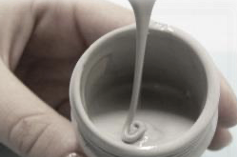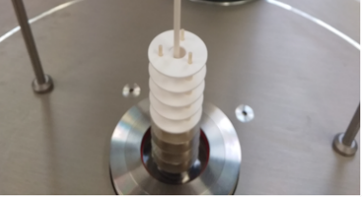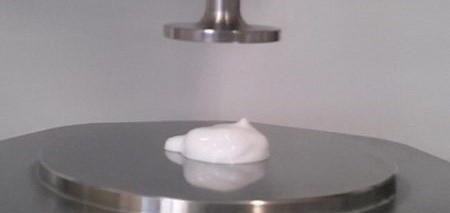Formulation of fluids (inks, pastes, suspensions, colloids,etc.)
Nano to Micro/Macro (Synthesis of dispersed-phases)
The dispersion of nanoparticles in different fluids is a fundamental tool for obtaining colloids, nanofluids, emulsions, which have various applications ranging from microfluidics, to life sciences, energy, etc. Furthermore, this is the first step necessary to produce inks, pastes and/or suspension for the subsequent shaping steps, either for film or 3D structures production.
A set of techniques and extensive know-how are offered to disperse nanoparticles into fluids or produce ink and pastes :
- dispersion of nanoparticles in water, glycols, oils by the proper selection of surfactants and by various dispersion processes (sonication, high pressure homogenization, ball milling)
- formulation of in inks, pastes, etc. in water or organic solvents suitable for the film deposition or 3D structure construction (three roll milling, centrifugal mixer, kneading machines)

@
provided at NFFA-Europe laboratories by:

@
provided at NFFA-Europe laboratories by:
Also consider
Structural & Morphology Characterization
SEM Scanning Electron Microscopy
In SEM a beam is scanned over a sample surface while a signal from secondary or back-scattered electrons is recorded. SEM is used to image an area of the sample with nanometric resolution, and also to measure its composition, crystallographic phase distribution and local texture.
Nano to Micro/Macro
TGA Thermogravimetric Analysis (TGA)
The thermal analyses are the set of techniques in which a physical property of a substance is measured as a function of temperature (or time) while the sample is subjected to a controlled temperature program (heating, cooling, isotherm).
Nano to Micro/Macro
Viscosity Viscosity
This technology allows to measure the viscosity of simple and complex fluids and for non-Newtonian fluids to determine its dependency on the flow conditions (shear rate).




